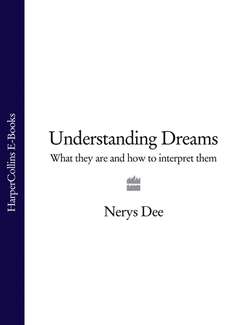Читать книгу Understanding Dreams: What they are and how to interpret them - Nerys Dee - Страница 25
how much sleep do we need?
ОглавлениеWe spend approximately one-third of our lives asleep. This means that when we reach the age of seventy-five, we have been asleep for twenty-five years. Babies sleep for over fifty per cent of their first year and, since most of this is in REM sleep, it is presumed they are dreaming visually. In fact they sleep and dream even before they are born. Adolescents sleep for eleven to twelve hours a night, adults seven to eight and older people seldom sleep for more than six hours during the night. This suggests we need slightly less sleep as we grow older.
Towards the end of the day we grow increasingly tired, both physically and mentally. Our bodies are heavy, we cannot concentrate, our eyes close involuntarily and we know that the only cure for this is to go to sleep. We, as human beings, are not alone in experiencing this all-consuming lethargy. Virtually every living organism is similarly affected. All mammals and birds sleep, so do fish and reptiles, albeit briefly. Even plants follow the diurnal and nocturnal cycles with their flowers closing their petals even before the sun goes down, and opening them again in the morning just before it rises. These cycles, the circadian rhythms, are daily fluctuations which seem to affect not only creatures and plants, down to their living cells, but the whole of nature as well.
Examples of this phenomenon on a grand scale are the rising and setting of the sun, the tides and the four seasons which, in turn, affect the breeding, seeding and dying of all species. Circadian rhythms also control sleep. We sleep when an internal clock in our brains gives the signal to our bodies telling it to stop daytime activity and slumber for a precise length of time.
Our internal clock, in common with the birds and plants, ‘switches us off’ at night. If we alter this pattern – an example is travelling from London to New York – we experience jet-lag. This condition is caused by breaking our circadian rhythm and even if we sleep for eight hours, beginning six hours later than usual, we cannot immediately adapt to the different rhythm. Our internal time-clock keeps telling our body it is six hours earlier. A change of sleeping pattern, therefore, does not mean we have lost sleep but rather that our inner-clock is out of phase with local time.
